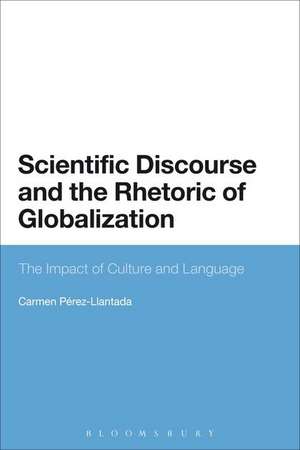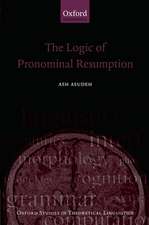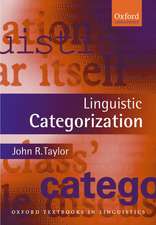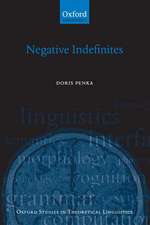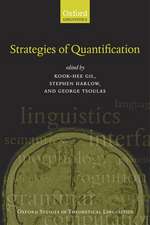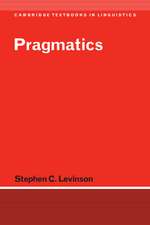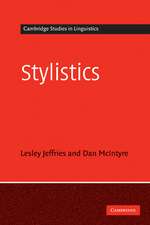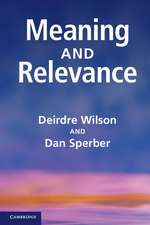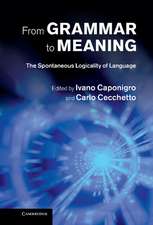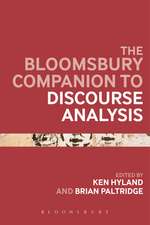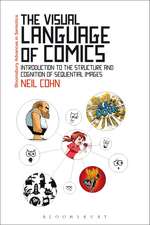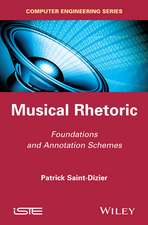Scientific Discourse and the Rhetoric of Globalization: The Impact of Culture and Language
Autor Professor Carmen Pérez-Llantadaen Limba Engleză Paperback – 6 noi 2013
| Toate formatele și edițiile | Preț | Express |
|---|---|---|
| Paperback (1) | 257.50 lei 43-57 zile | |
| Bloomsbury Publishing – 6 noi 2013 | 257.50 lei 43-57 zile | |
| Hardback (1) | 1007.62 lei 43-57 zile | |
| Bloomsbury Publishing – 28 mar 2012 | 1007.62 lei 43-57 zile |
Preț: 257.50 lei
Nou
Puncte Express: 386
Preț estimativ în valută:
49.27€ • 51.58$ • 40.77£
49.27€ • 51.58$ • 40.77£
Carte tipărită la comandă
Livrare economică 07-21 aprilie
Preluare comenzi: 021 569.72.76
Specificații
ISBN-13: 9781472534316
ISBN-10: 147253431X
Pagini: 256
Dimensiuni: 156 x 234 x 14 mm
Greutate: 0.36 kg
Editura: Bloomsbury Publishing
Colecția Bloomsbury Academic
Locul publicării:London, United Kingdom
ISBN-10: 147253431X
Pagini: 256
Dimensiuni: 156 x 234 x 14 mm
Greutate: 0.36 kg
Editura: Bloomsbury Publishing
Colecția Bloomsbury Academic
Locul publicării:London, United Kingdom
Caracteristici
Ascribes the contemporary rhetoric of science as a response to global challenges.
Notă biografică
Professor Carmen Pérez-Llantada is at the Department of English and German Studies, University of Zaragoza, Spain.
Cuprins
1. The Role of Science Rhetoric in the Global Village 2. Scientific English in the Postmodern Age 3. Problematizing the Rhetoric of Contemporary Science 4. An Intercultural Rhetoric Approach to Science Dissemination 5. Disciplinary Practices and Procedures within Research Sites 6. Triangulating Texts, Processes and Practices in Scientific Discourses 7. English as a Lingua Franca and a More Complex Sociolinguistic Landscape 8. Redefining the Rhetoric of Science Bibliography Index
Recenzii
Thoughtful [and] well-documented . This book makes a major contribution to our understanding of developments in scientific publication and education, and is useful reading for anyone involved in teaching English at university level . [T]he book is rich, complex and carefully argued.
If the reader still needs convincing that Spain is now a world leader in research into academic English, this book should clinch it. Professor Carmen Perez-Llantada here demonstrates how her major investigative projects offer both theoretical insight and practical value to all those having to cope with a globalizing research world.
Llantada's volume introduces the reader to a fuller understanding of the interrelatedness between science, language(s), culture(s) and the processes of globalization. It does so by combining both text-linguistic and ethnographic analyses. Taking the Spanish scholarly community as an instance, she explores the situational context of scientific discourse production and yields evidence of discursive similarities but also hybridization processes in academic norms across different cultural contexts.'
If the reader still needs convincing that Spain is now a world leader in research into academic English, this book should clinch it. Professor Carmen Perez-Llantada here demonstrates how her major investigative projects offer both theoretical insight and practical value to all those having to cope with a globalizing research world.
Llantada's volume introduces the reader to a fuller understanding of the interrelatedness between science, language(s), culture(s) and the processes of globalization. It does so by combining both text-linguistic and ethnographic analyses. Taking the Spanish scholarly community as an instance, she explores the situational context of scientific discourse production and yields evidence of discursive similarities but also hybridization processes in academic norms across different cultural contexts.'
Descriere
Descriere de la o altă ediție sau format:
Examines scientific discourse using a textographic framework, highlighting tensions between global and local trends in academic writing. This book contests monolingual assumptions informing scientific discourse, calling attention to emerging glocal discourses that make hybrids of the standard globalized and local academic English norms.
Examines scientific discourse using a textographic framework, highlighting tensions between global and local trends in academic writing. This book contests monolingual assumptions informing scientific discourse, calling attention to emerging glocal discourses that make hybrids of the standard globalized and local academic English norms.
